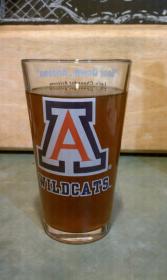Ok so ten days into bottle condition and cracked the first one. absolutely no foam, head, nothing. few bubbles in the glass but that's it, primed with all but 1 inch worth of a 5 oz priming sugar packet, it was just over 3/4 cup. beer has been at 70F for the five days, sat at around 66F the first five days.
it almost still tasted like my FG sample after it was done fermenting. surely this will eventually carb up right? kick me if you need to, just kind of worried i somehow didn't get enough sugar in/not high enough temp??
it almost still tasted like my FG sample after it was done fermenting. surely this will eventually carb up right? kick me if you need to, just kind of worried i somehow didn't get enough sugar in/not high enough temp??



